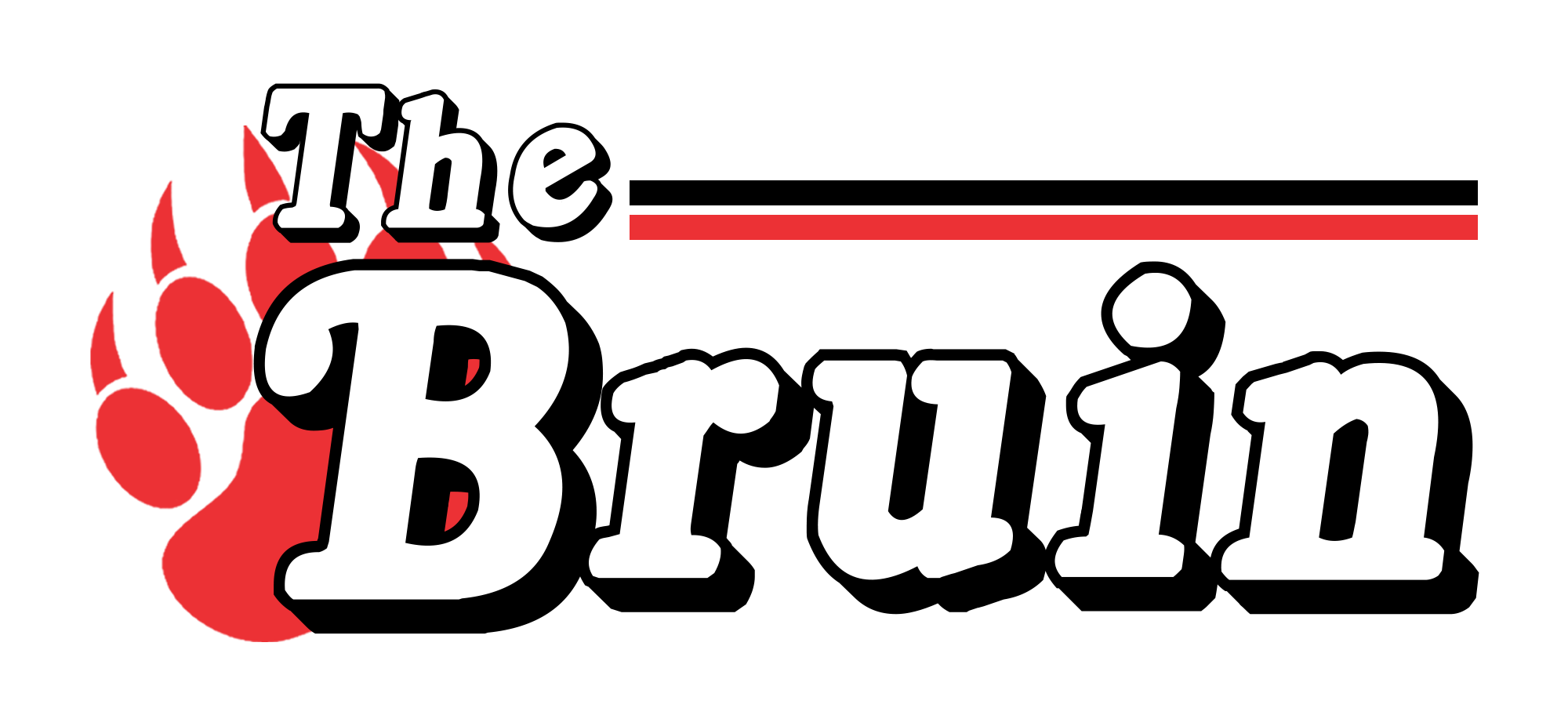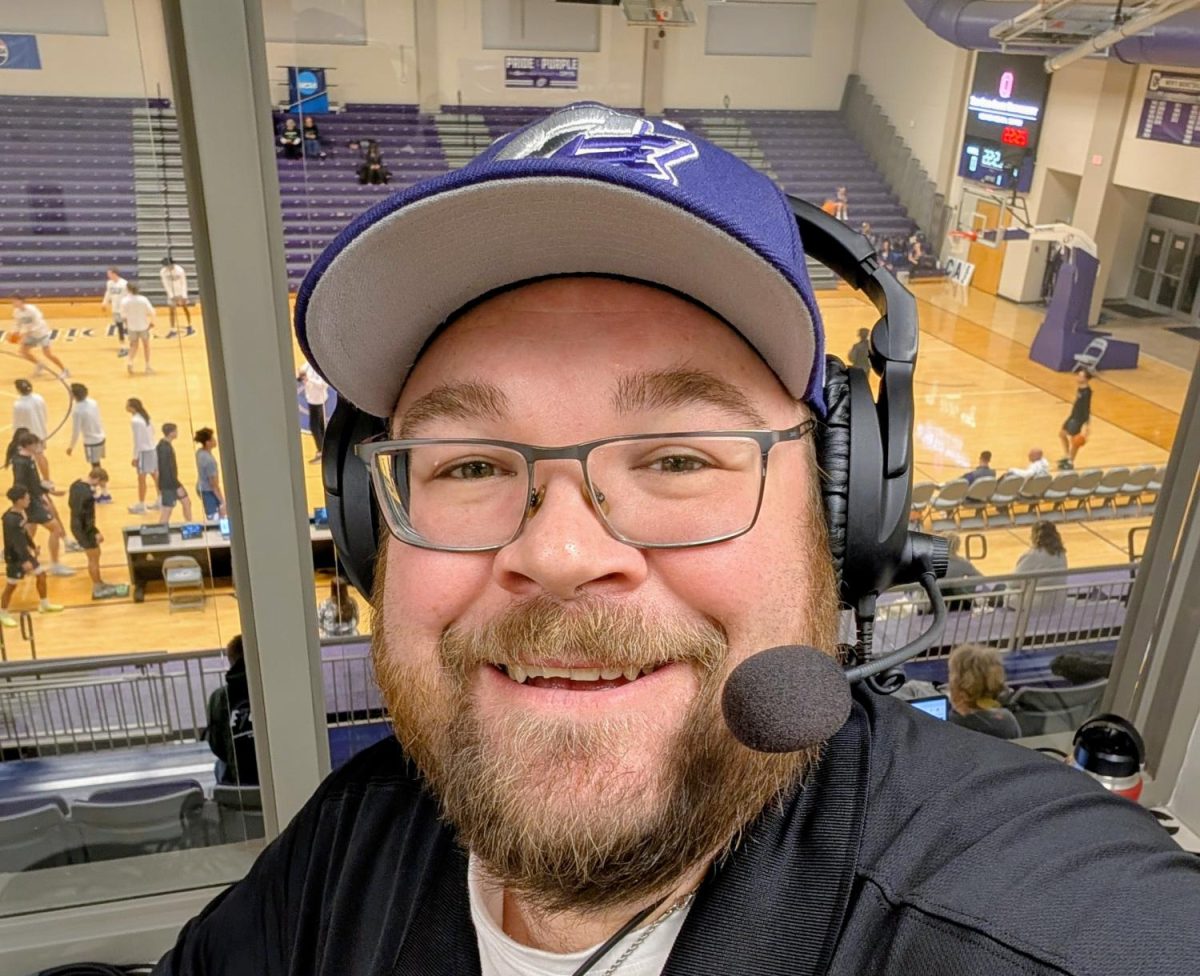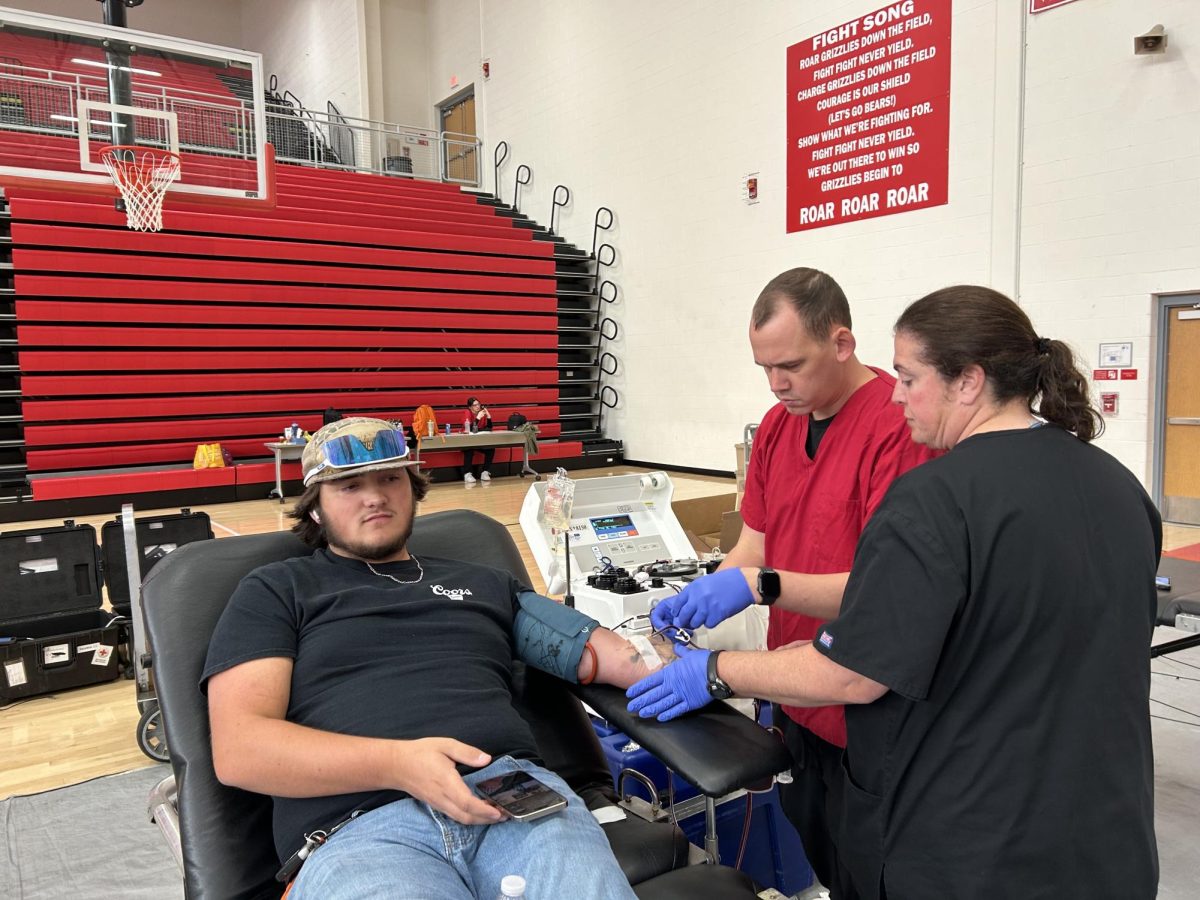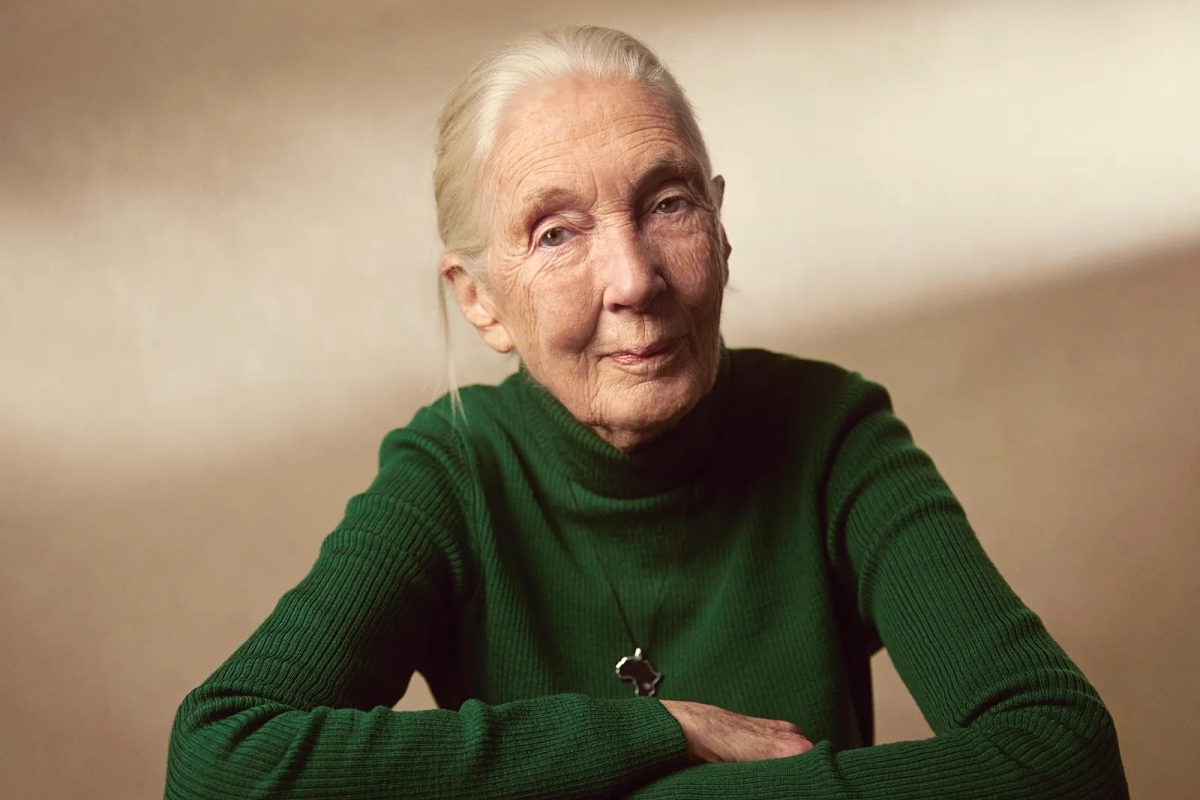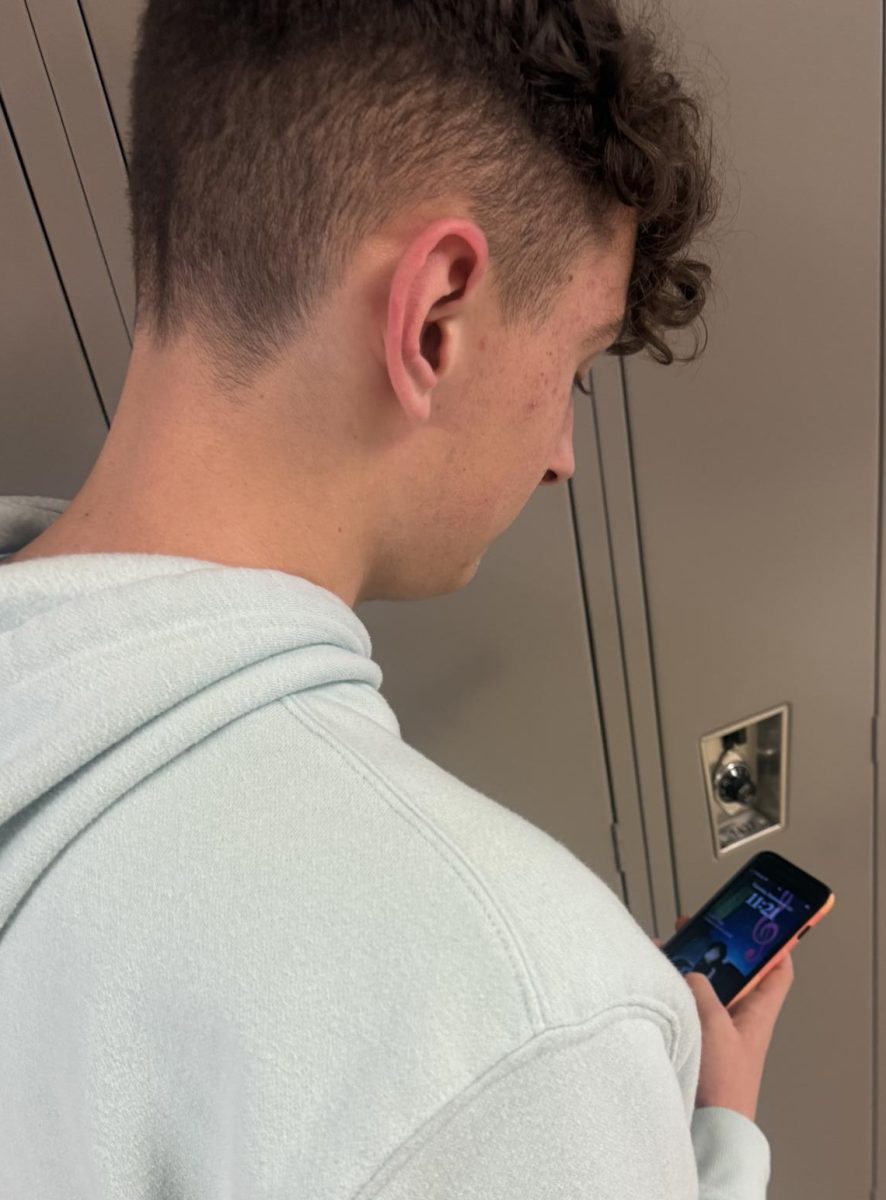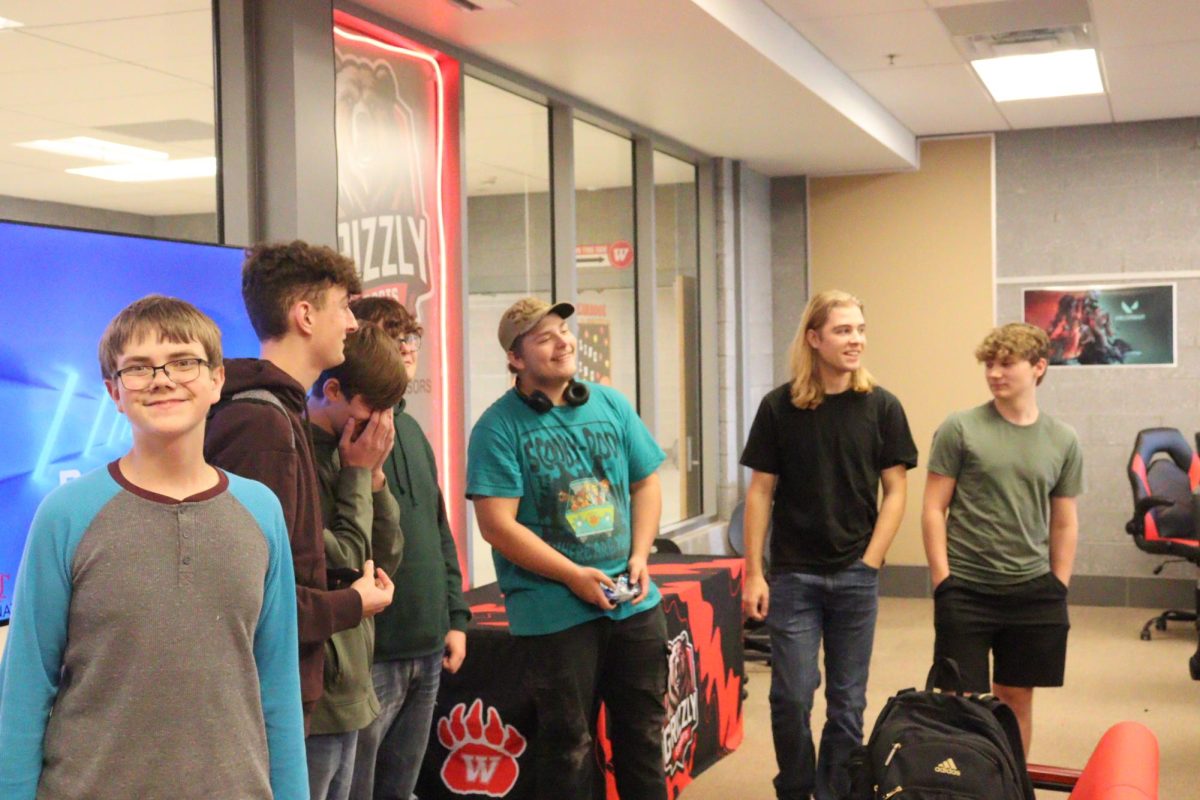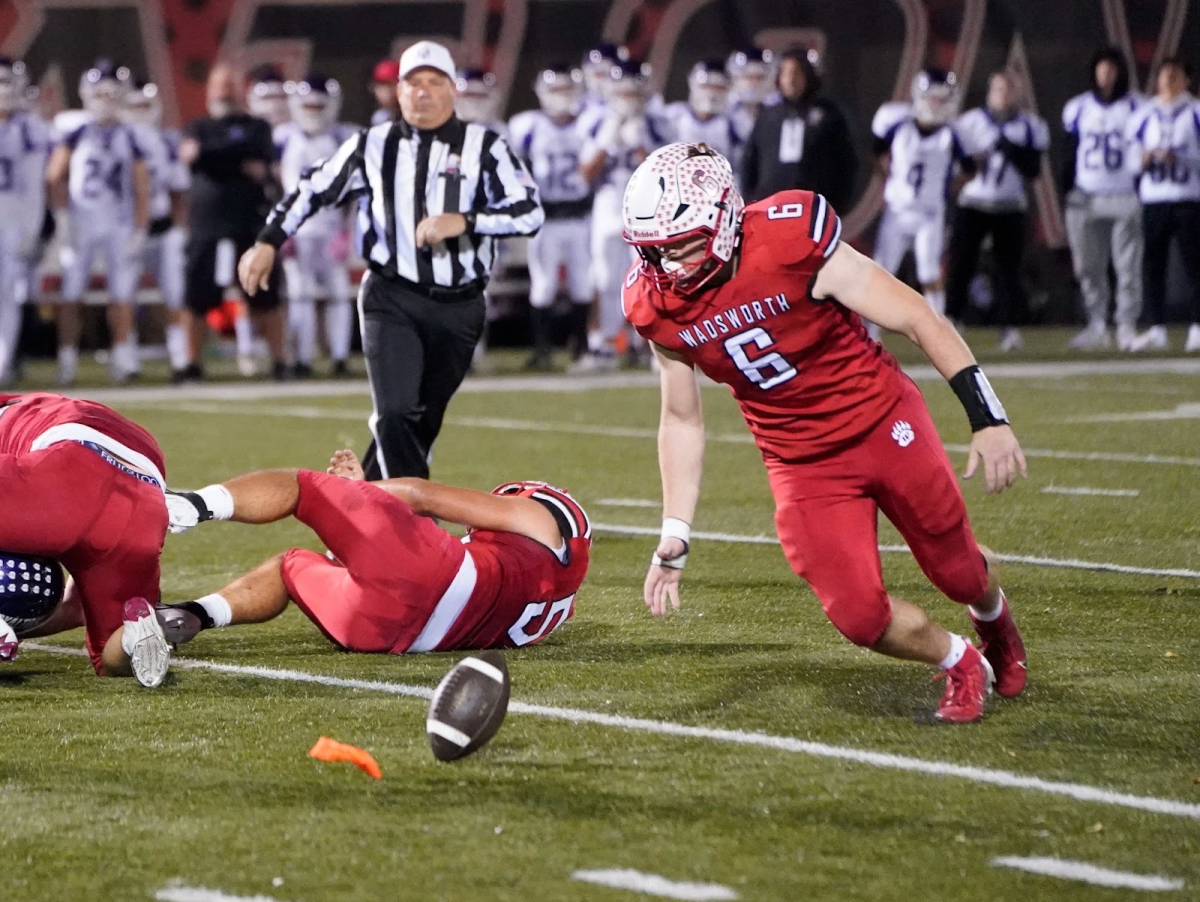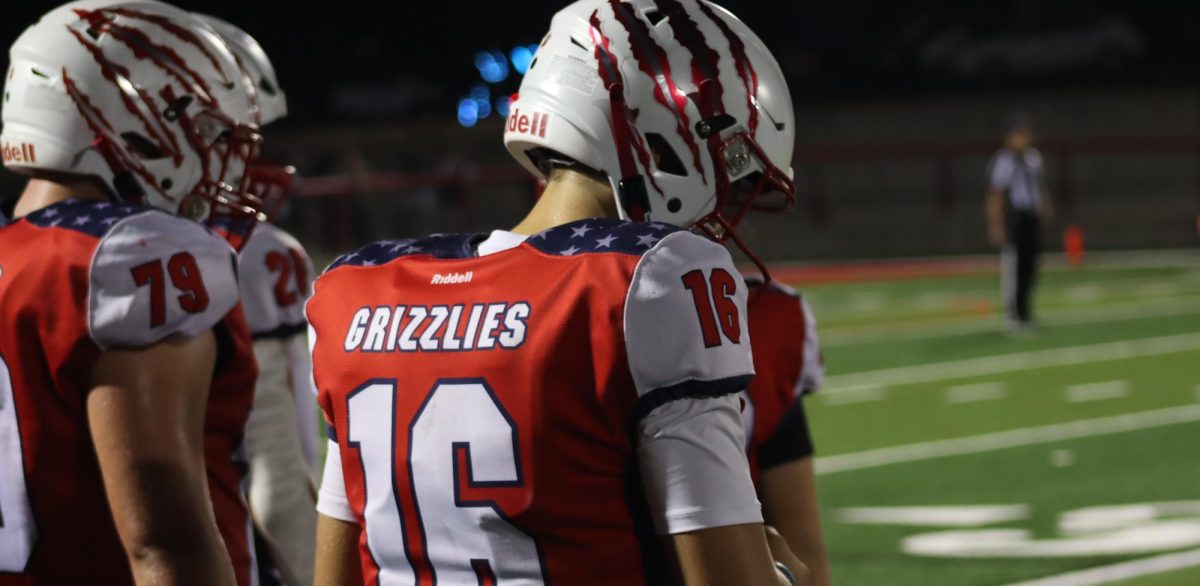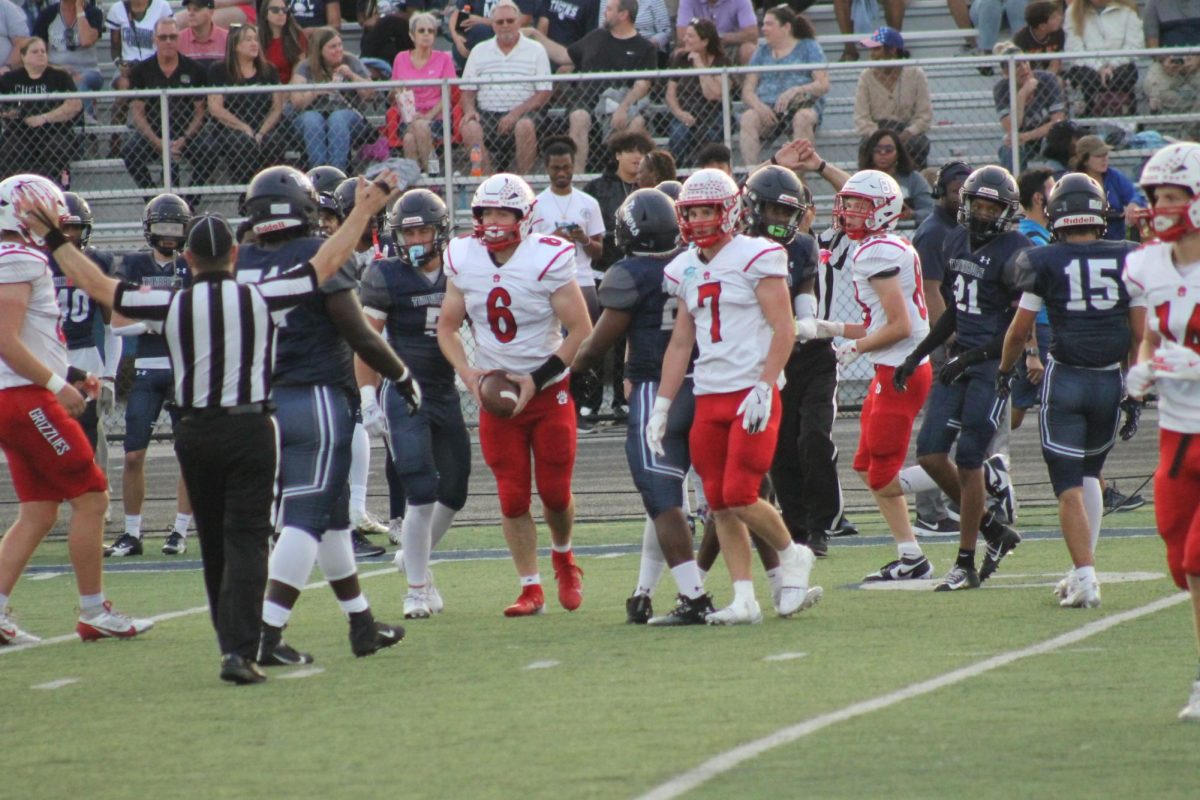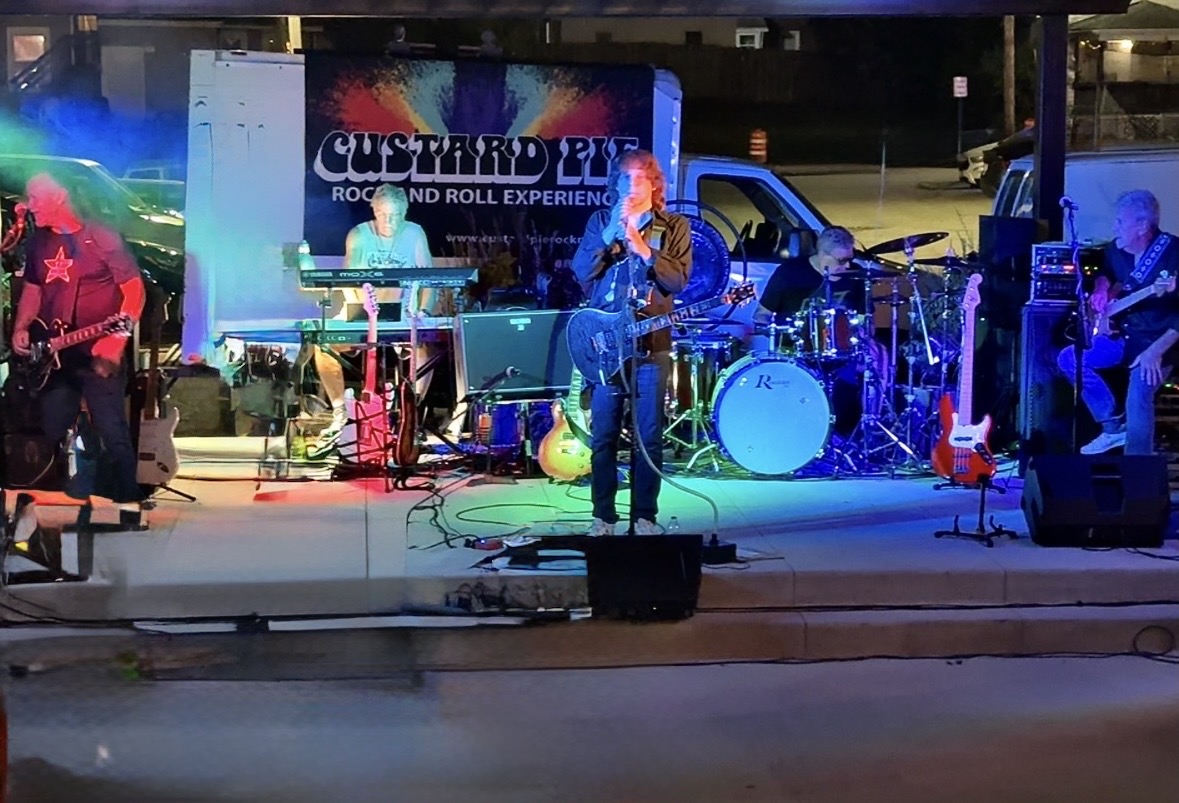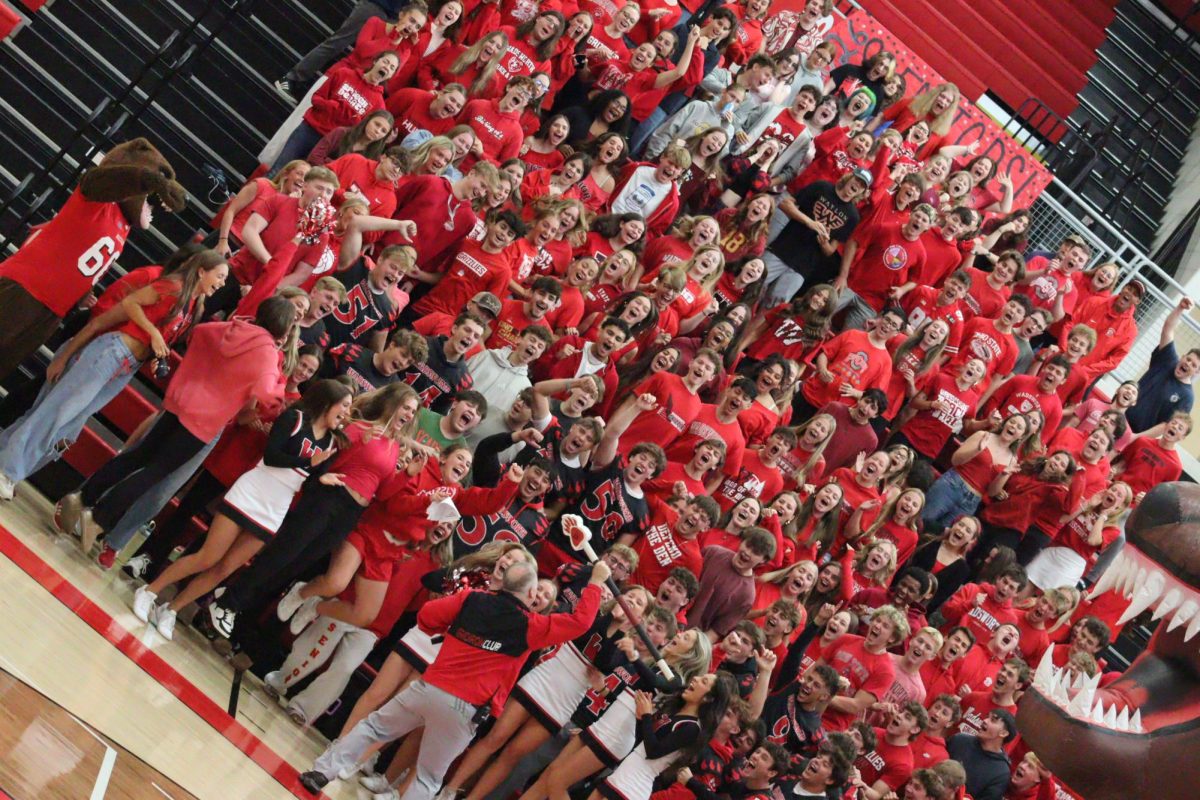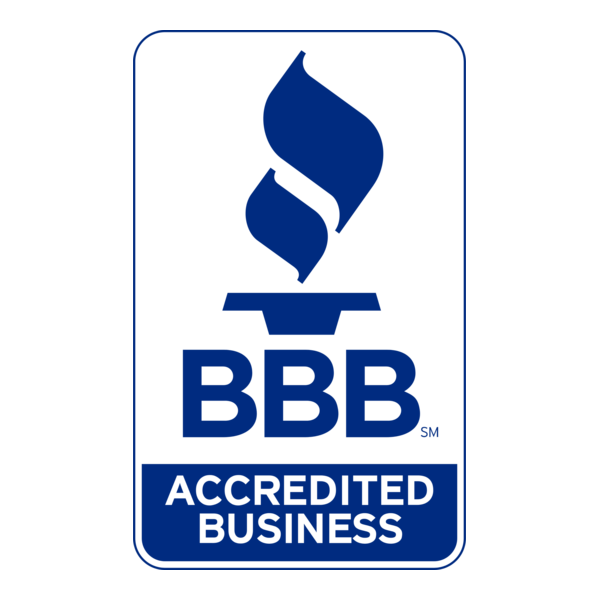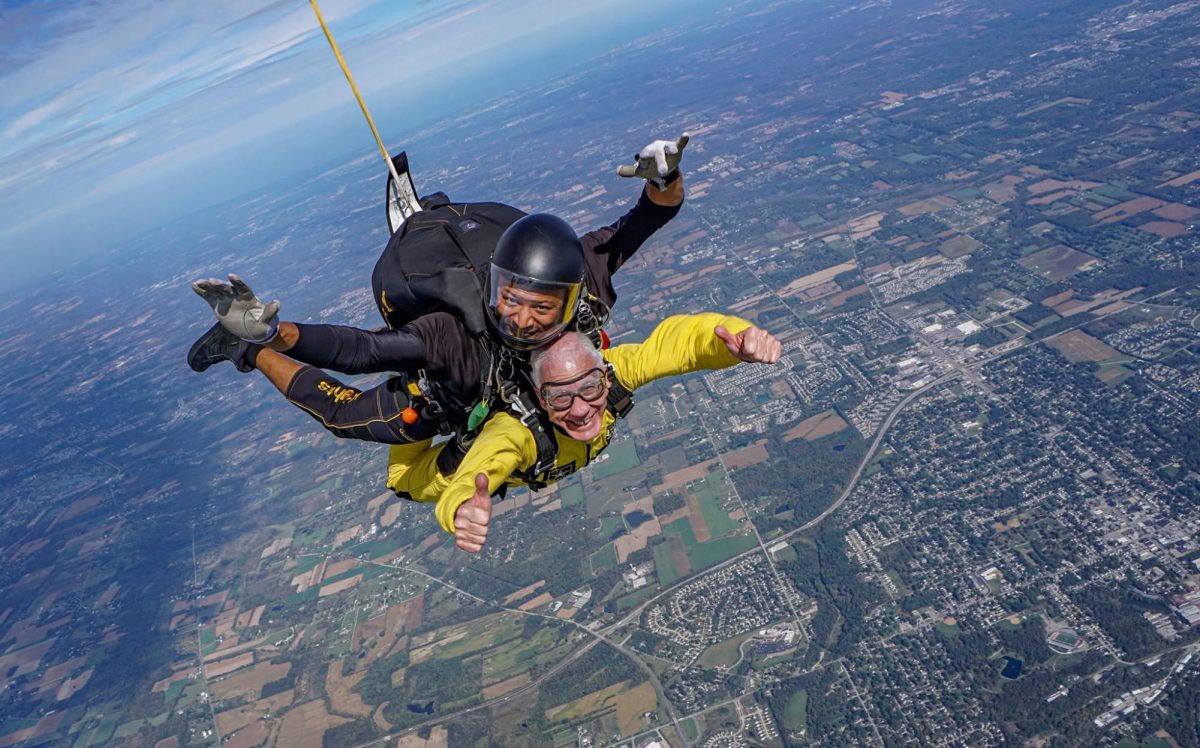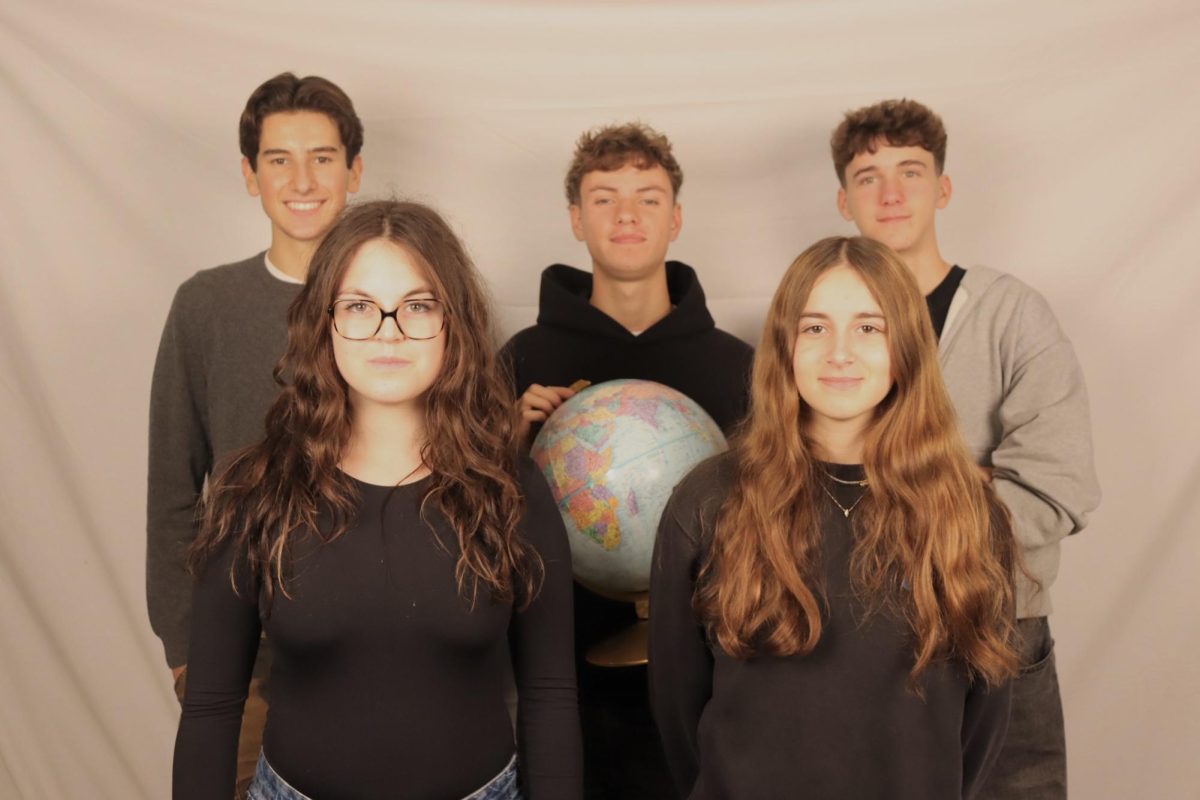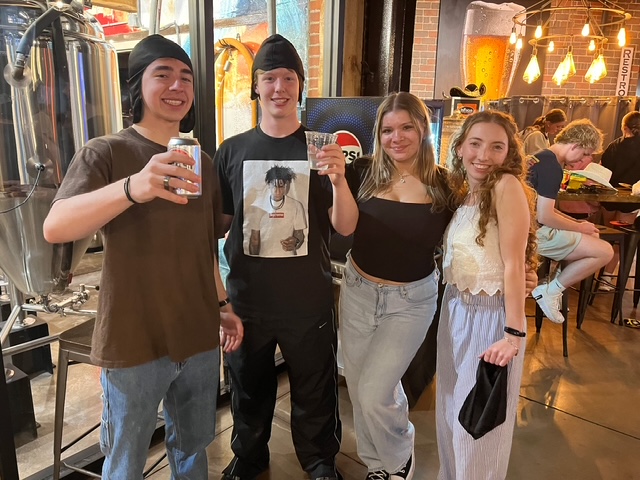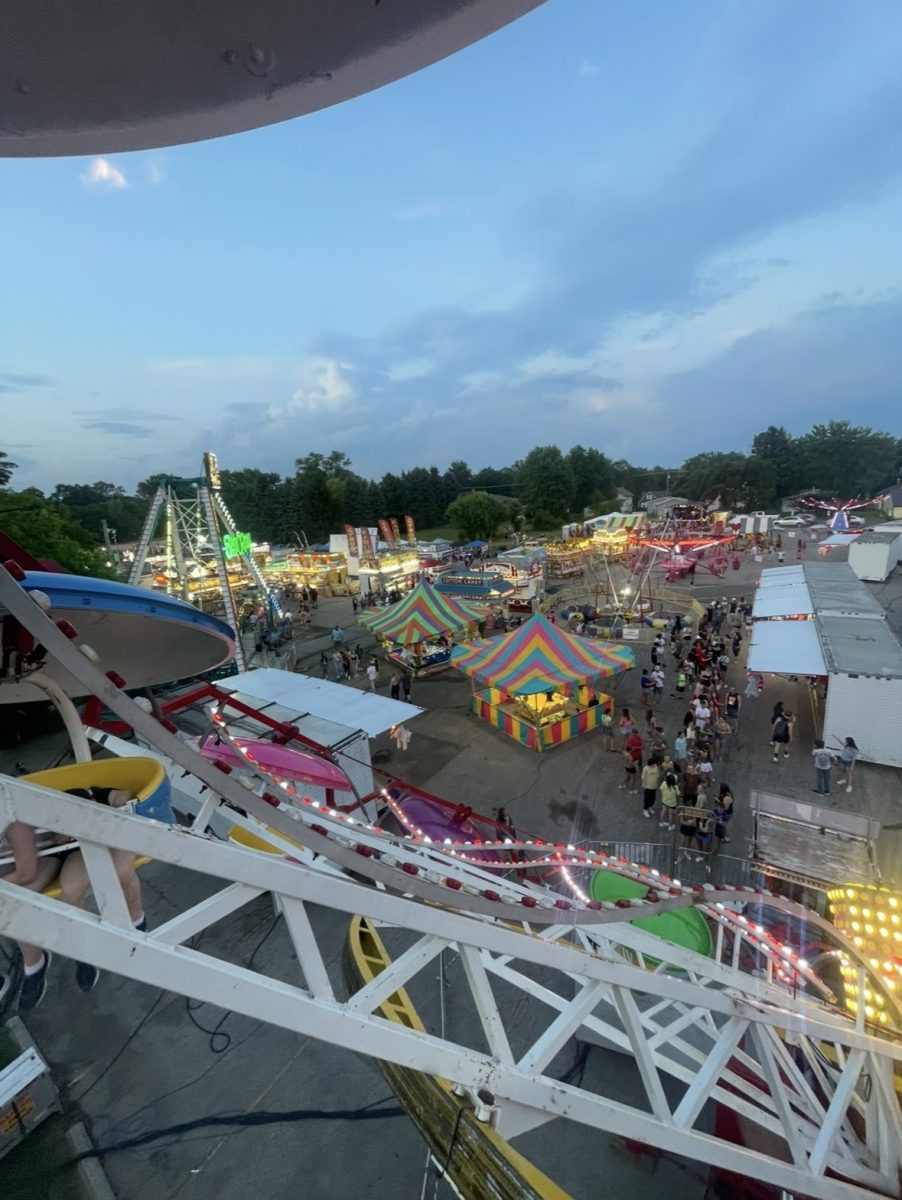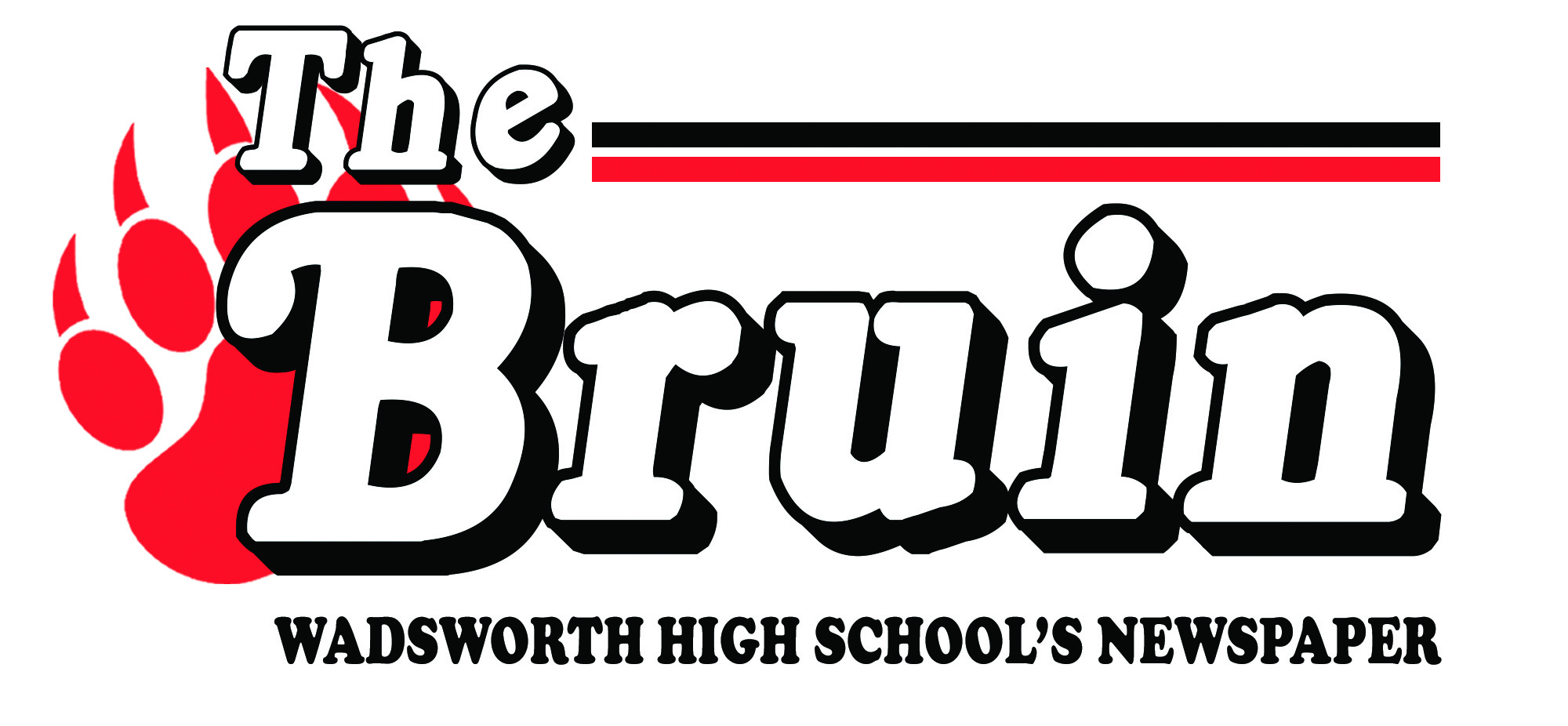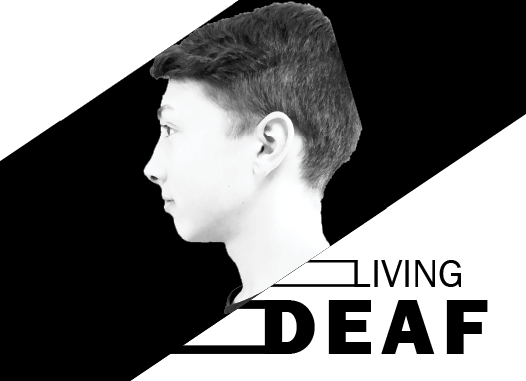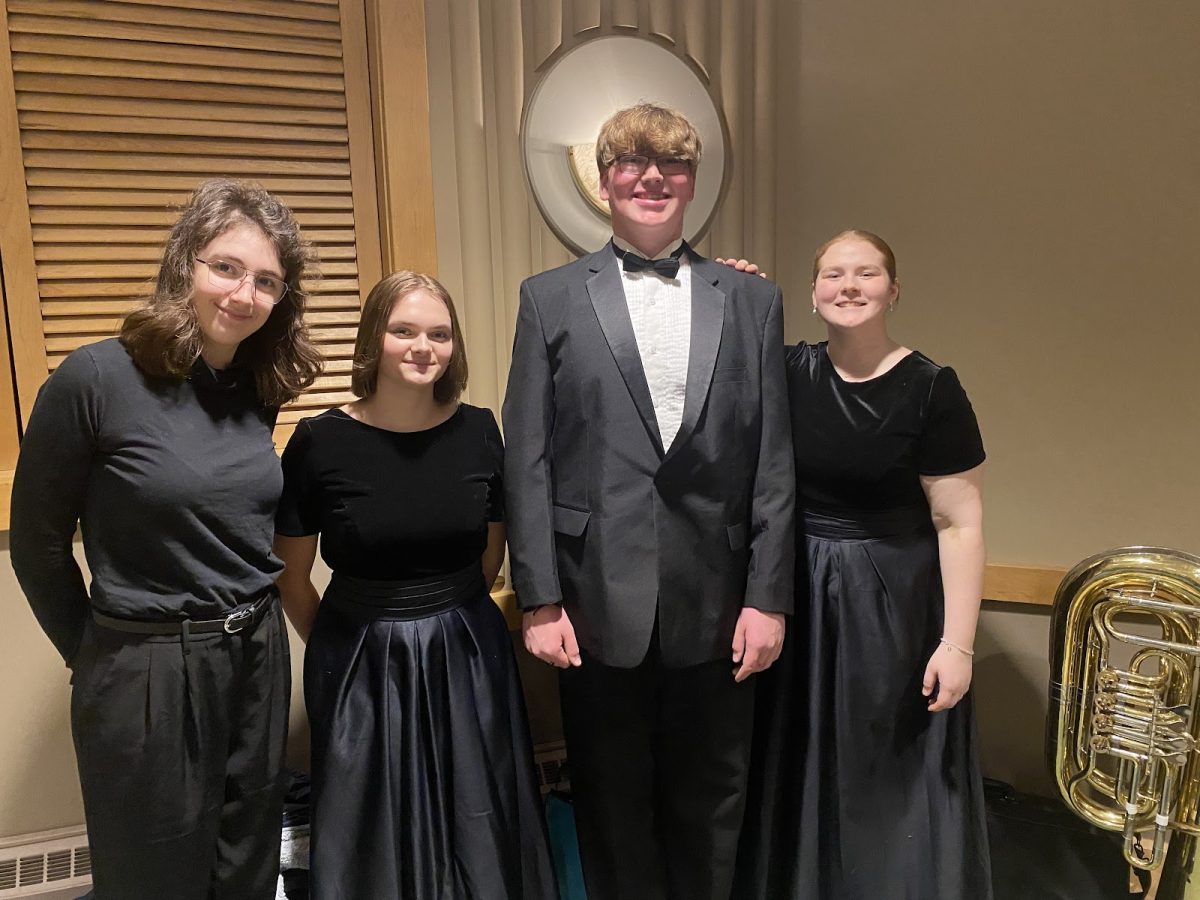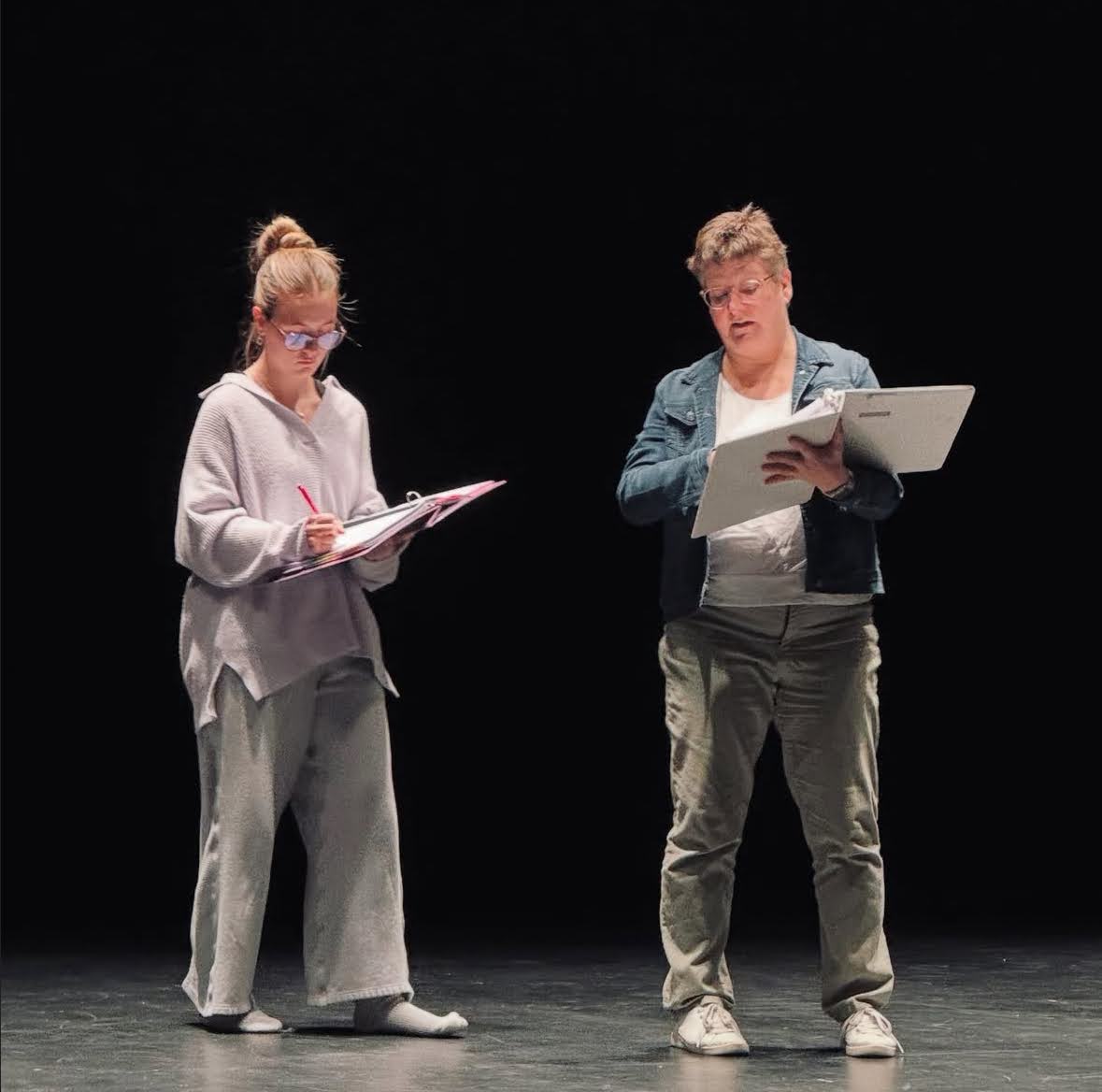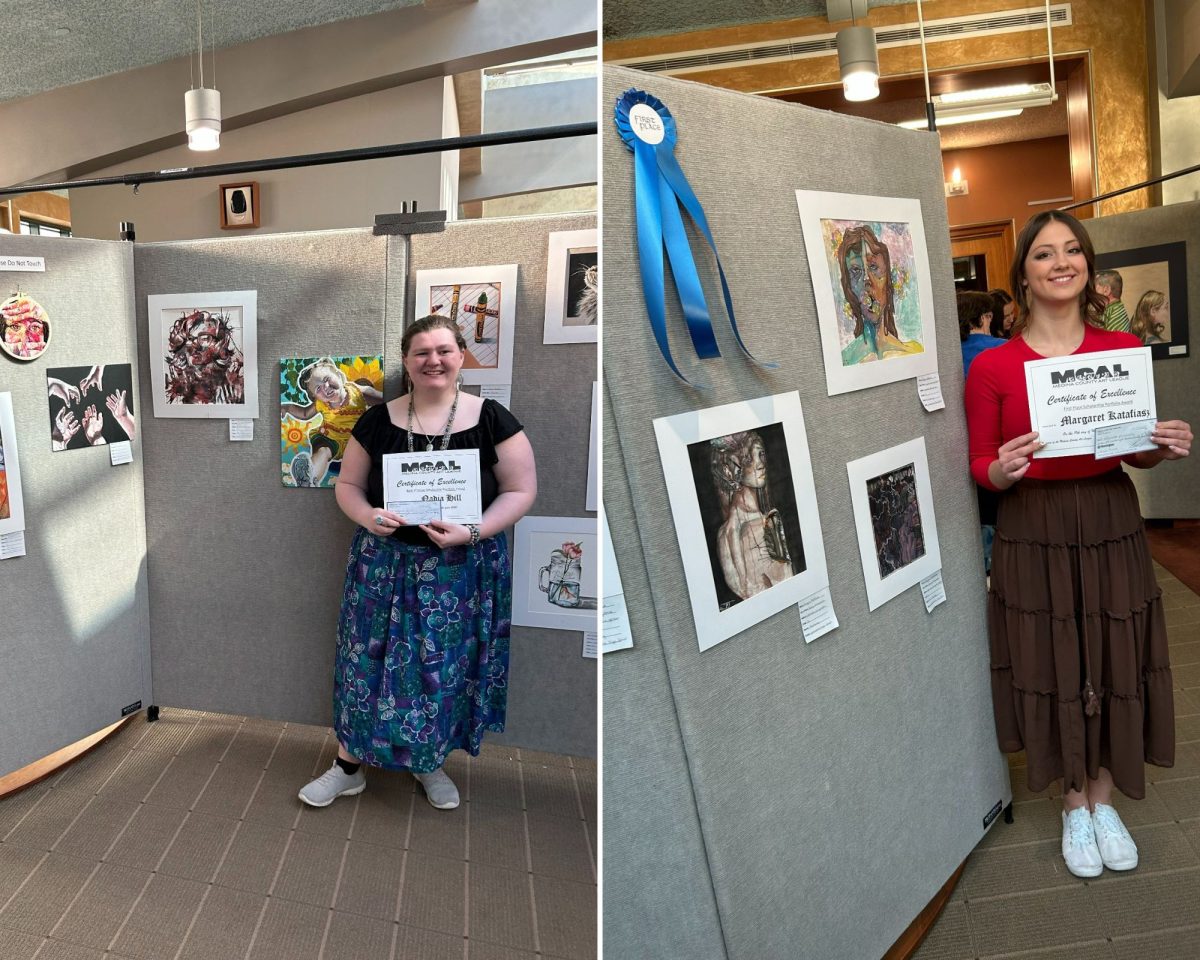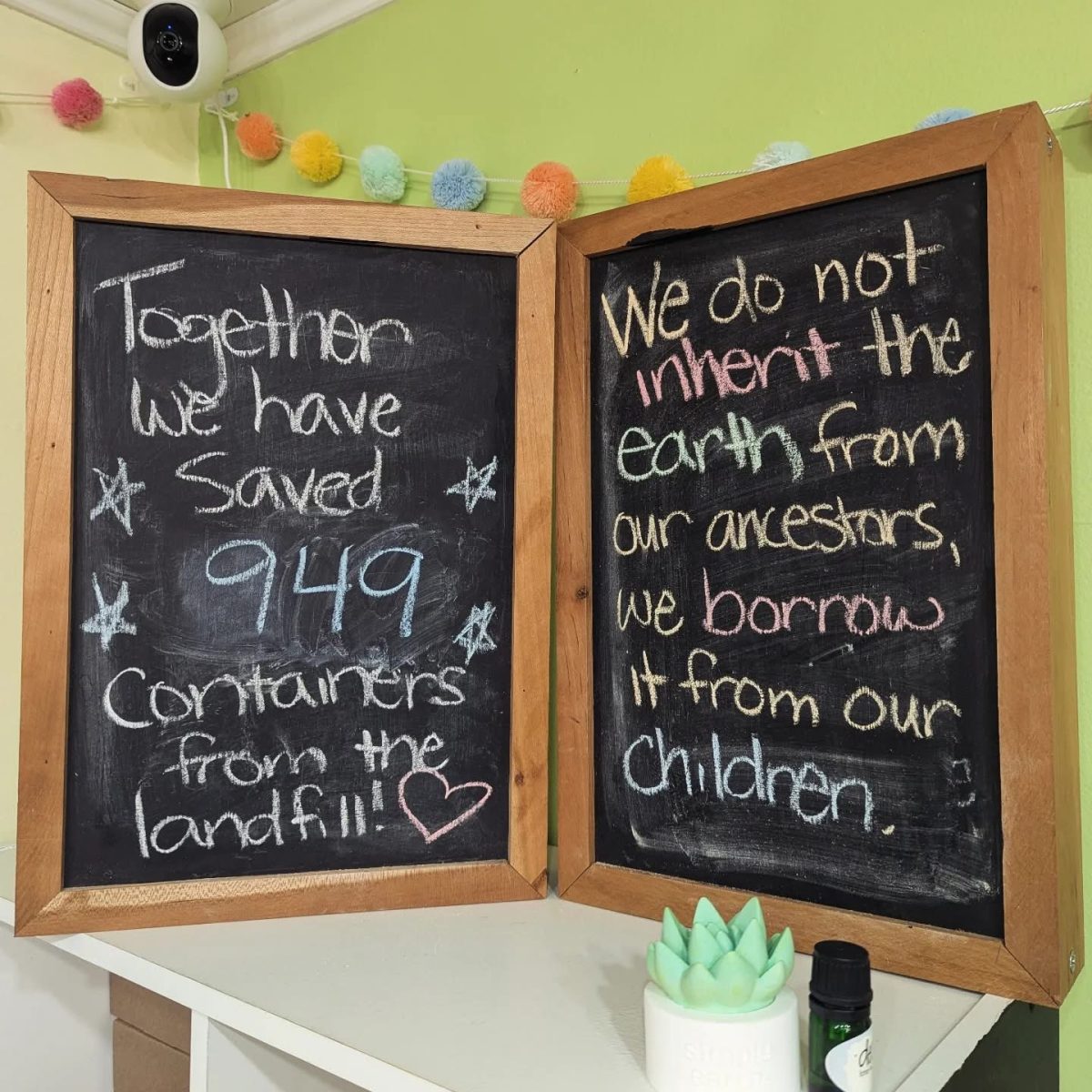BY BRIANNA BECERRA
Jonathan Zeitler, a freshman at Wadsworth High School, has been deaf since birth. His hearing difficulties have shaped the course of his life as well as his experiences at school.
“I was one and a half years old when they knew I was deaf,” said Jonathan.
He has never known his life to be any different. He is the only deaf member of his family. Jonathan reports that he has tried to use hearing aids to assist him, but they were unsuccessful.
This was a big disappointment for him, as he so badly desires to have the ability to hear.
Jonathan has fortunately received an immense amount of support from his family, as they do their best to accommodate his needs. His older sister Faith Zeitler, says that his deafness has changed their family dynamic.
Not all members of his family can sign, but his grandmother, mother and sister have taken the time to learn. Their goal is to make him feel included by learning sign language and communicating with him via sign.
“We love to do things that involve other deaf children his age so he has kids to relate with,” said Faith.
Even though the Zeitler family focuses on inclusivity in order to make Jonathan feel more comfortable, there have been some struggles along the way. The average form of communication between family members is verbal, but this is not how their family operates.
“It does make things like just yelling for him more difficult,” explained Faith.
In order to communicate with others, Jonathan will often type out messages on his phone. The use of technology in school has allowed him to have a relatively quick form of communication with other students without relying solely on his interpreter. He also utilizes hand motions in an attempt to socialize with others.
In order to make Jonathan feel more included, WHS allows him to visit deaf schools so he can communicate with other teenagers that are like him. He reports that this is always a highlight for him, as he is the only deaf student at the high school.
“We go to the deaf school for a fun time,” said Jonathan. Though Jonathan faces more challenges at school than the usual student due to his hearing difficulties, he has been able to work through it with the help of his sign language interpreter. Sue McWilliams became an interpreter 17 years ago and has been working with the deaf community ever since. She reports that the decision to become an interpreter was not a difficult one.
“I have always had an interest in working with children with speech and hearing difficulties,” said McWilliams. “Learning to communicate with the deaf [and] learning sign language just felt like the right thing to do.”
McWilliams finds great joy in her work, as she is able to assist others with communication. She has always had a passion for sign language and hopes to make a difference for those who are affected by hearing difficulties. Though she is satisfied with her work as an interpreter, this position does not come without its drawbacks.
“My least favorite part is battling the prejudices of what is not known about the deaf and their culture,” reported McWilliams.
Due to her experience as an interpreter, she has been able to recognize that the deaf community is widely misunderstood. Though she acknowledges that teachers have attempted to accommodate the needs of these students, there are certain needs that must be met in order for them to be successful in the classroom. Teachers and classmates must be patient with these students, as they do not have the ability to follow along in class as quickly as other students.
“It needs to be understood that there is [a] little bit of lag time between the interpretation of information and the processing of the information by the deaf or hard of hearing person,” explained McWilliams.
The learning style of deaf or hard of hearing students differs from that of their other classmates, as more resources must be provided for them. They should sit in the front of the classroom so they can easily view their interpreter, as this may be their only line of communication in the room. Group activities provide a whole new set of challenges, as the student and interpreter must collaborate in order to be able to communicate with the other group members.
Not only do these students need easy access to their interpreter, but they also need additional materials provided for them in order to reach the highest level of success. They are unable to take notes during class, as they have to keep their gaze upon their interpreter in order to understand the teacher. This means that handouts and notes should be given to them, as this would allow them to focus on understanding their interpreter.
Jonathan is very appreciative of everything that his teachers have done in order to accommodate his different learning style.
“They help me so much,” reported Jonathan. “They try to make it easy for me to understand.”
McWilliams does everything in her power to provide the assistance needed by these deaf or hard of hearing students. She hopes that students like Jonathan can be treated as equals in the education system and throughout the world, as their hearing ability does not define who they are.
“The only thing a deaf person cannot do is hear,” said McWilliams. “They are capable of doing anything a hearing person can.”
McWilliams commented that many assume that because Jonathan is deaf, he is not intelligent. She states that this assumption deeply offends the deaf community, as their cognitive abilities are up to par with those who are able to hear. She hopes to take away the stigma of being deaf, as many people simply do not understand the community.
Jonathan reports that he has experienced bullying due to being deaf, as other students can be insensitive to his differences. Though he says that he has been mocked and mean comments have been made about him, he does not let it affect him.
“It’s not a big problem,” said Jonathan. “I’m used to it.”
He says that the biggest obstacle he faces is in regards to the social aspect of high school. While Jonathan has many friends at school, he still feels the sting of loneliness and estrangement from other students. His deafness prevents him from participating in many after school activities.
“I only talk to my friends in school,” explained Jonathan. “I go home from school and have nothing to do all night. I just want to be able to hear.”
Faith agrees with McWilliams when it comes to the importance of the deaf community. She believes that sign language is vital for all people to learn, as this would allow for those who are deaf or hard of hearing to feel more included.
“I wish more people took the time to learn [to] sign,” said Faith.
For some who are affected by hearing difficulties, hearing devices can assist them in their day to day life, whether it be at home or in a learning environment. Amy Young, Wadsworth resident, has dedicated much of her time and energy to providing children with hearing devices. She is the Director of State Coordinators for HIKE, formally known as Hearing Improvement Kids Endowment. HIKE is the philanthropic project of Job’s Daughters International, a leadership organization for young women.
HIKE is a nonprofit charity that gives grants to children who cannot otherwise afford the hearing devices that they need. It was founded in 1985 by Ohio native Emma Tedrick and has raised over $5.7 million since then. 63 children were given grants during the 2018-2019 year, totaling $160,000. Last year, Ohio was a leading state in fundraising.
Young has been involved with HIKE for almost ten years, rising up the ranks to become the Director of State Coordinators. She says that this organization is important to her due to her own personal experiences and family members that are part of the deaf or hard of hearing community.
“Having hereditary hearing loss in my family, I know firsthand how expensive hearing aids are,” said Young.
Young reports that working with HIKE has been a very rewarding experience, as she has been able to support the young ladies of Job’s Daughters as they raise thousands of dollars to help other children. The slogan of HIKE is “kids helping kids”, and Young agrees that this is an important foundation of the nonprofit organization.
Though she finds much joy in assisting the girls in their fundraising, she says that nothing is more rewarding than witnessing a grant being given out to a child.
“A recipient, who was sixteen, told of how the grant helped financially,” said Young. “Her father had been working two jobs to help pay for the cost of the hearing aids.”
Through her work with HIKE, she has communicated with many children who are affected by hearing difficulties. Young herself has hearing loss, which allows her to relate with the children that are receiving grants.
While the grants are able to help the children gain some level of hearing, this is not the case for everyone. In order to allow for clearer communication between deaf and hearing people, Young proposes that all schools should teach sign language.
“I personally took a class as a young adult and was able to use it while I was a travel agent,” said Young. “It made helping them so much easier, and [they] were grateful that I knew sign language.”
Jonathan agrees with Young, as this would greatly improve communication between him and other students.
“People get confused about what I’m saying,” explained Jonathan. “I want them to learn it so they can understand what I say.”
Though a sign language club made an appearance at Wadsworth Middle School for two years, it did not result in much success due to low attendance. Creating a sign language club or class at WHS may be more successful, as some students and teachers have expressed a desire to learn basic words and phrases in sign language.
The Zeitlers, McWilliams and Young hope to make the world more accepting of the deaf community, and the creation of a sign language club at WHS could be a catalyst for the change that they wish to see.
